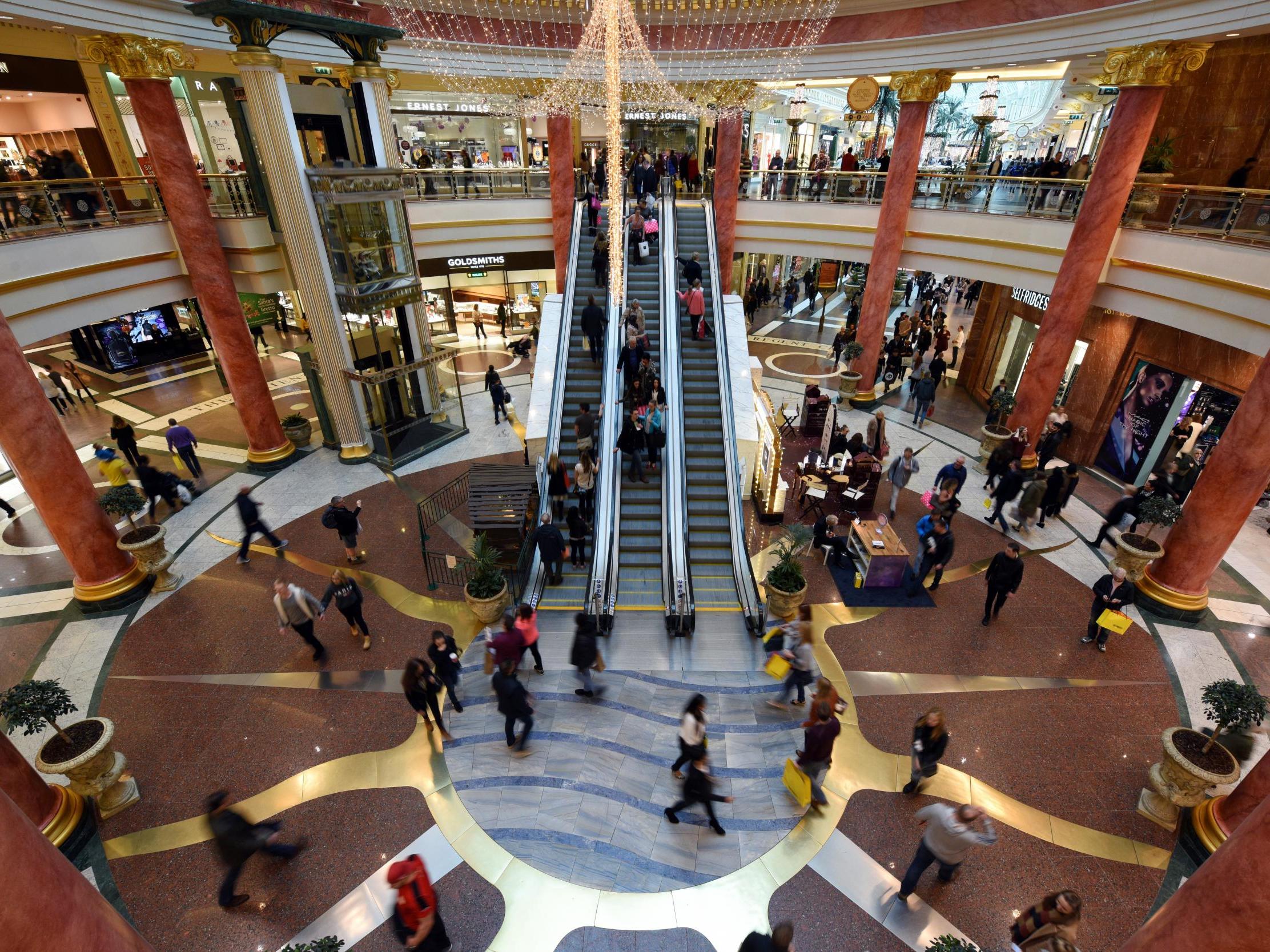Is there a future for the shopping centre?
The owner of the Trafford Centre and Lakeside insists that physical stores can adapt, writes James Moore – but will they get the chance to prove it?


The store is not dying. It is evolving. This was the message Matthew Roberts, the CEO of Intu, was keen to stress as the UK’s largest shopping centre operator unveiled a fairly awful set of results
The company produced some statistics to show it too. “First, around 90 per cent of all retail spend is influenced by a physical store, and second, the presence of a physical store can double a retailer’s online sales in that local catchment,” Roberts declared.
And there was more: “Seventy-seven per cent of transactions will still touch a physical store by 2016, even with the overall percentage of online sales increasing from around 20 per cent to 30 per cent.”
Trouble is, there wasn’t much interest because the group reported a £2bn loss and warned about “material uncertainty in relation to Intu’s ability to continue as a going concern”.
In English: it might go pop. Intu has a mountain of debt and when it tried to tap its investors for £1.5bn to help it deal with the problem, they baulked, understandably enough given the way the markets have been swinging up, but mostly down, like the latest thrill ride at Disney World.
Intu has been hit by many of the same issues that have hit the retail chains that rent its space: a rise in online shopping, a dodgy economy keeping shoppers at home, political uncertainty.
Against that backdrop, the Covid-19 outbreak (and the subsequent need for social distancing it has ushered in) could hardly have come at a worse time.
On the same day as Intu belatedly issued its results, WH Smith issued a profit warning, which shouldn’t come as a great surprise given the importance of outlets based at airports and the like to the group.
Meanwhile, Cineworld also expressed doubts about its ability to pay its debts in the event of a “worst case scenario” of cinema closures.
Cinemas, and other entertainment venues, are part of what Intu needs if it is to have a profitable future, to fill its vacant space and to increase footfall. But they’re getting hit too.
Intu’s loss was largely a paper one, as a result of the revaluation of its property portfolio. But even its underlying earnings fell by an unhealthy 66 per cent.
The stuff about the evolution of stores, and how top tier locations like the Lakeside Centre and the Trafford Centre, which it owns, will always be important was aimed at investors and lenders.
Roberts needs to get them onside, the latter group in particular.
He said he has options in the wake of the failed cash call, but you have to question his citing asset disposals. It’s hard to imagine a worse time to be selling off bits and pieces.
That leaves “alternative capital structures”. No, I don’t really know what that means either.
But we were told that “many global brands, such as Apple, Inditex, Victoria’s Secret and Abercrombie & Fitch” see Intu’s centres as a first port of call.
Translation: we can make this work if you’ll just back us through this.
Intu is far from the only business putting out a message like that right now.
Are lenders willing to listen? Fear is stalking the corporate bond markets, just as it is the retail sector, and the banks aren’t feeling too happy about life either.
The trouble with fear is that people feeling it aren’t likely to hang around to hear about the exciting research you’ve commissioned. They just run.
Join our commenting forum
Join thought-provoking conversations, follow other Independent readers and see their replies
Comments